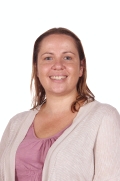Kings Ely senior
Academic
Senior Science
Science is taught in three separate disciplines – Physics, Chemistry and Biology.
Probably the most significant decision facing the Year 9 scientist is whether to choose Double Award or Triple Award.
Triple Award Science is one of the option choices and Double Award is part of the core curriculum.
| GCSE Double Award |
|---|
|
A single two graded GCSE in Science, taught as three separate Sciences in 6 lessons per week. This slimmed down Science experience allows for an extra GCSE in another subject. Gives a slimmed down Science experience to allow for an extra GCSE in another subject. DA Science will link to Science A-levels satisfactorily. Good for the student who would like to keep their options open, the student who is not ready to specialise yet. |
| GCSE Triple Award |
|---|
|
For the dedicated student who definitely wants to pursue technical subjects in the future, this award gives an excellent broad based grounding in Science, and Students will gain a large amount of experience in practical work. Three entirely separate Science GCSEs (Physics, Chemistry, Biology) taught in 9 lessons per week. Gives an excellent broad based grounding in Science. Students will gain a large amount of experience in practical work. A great option for the dedicated scientist, the student who definitely wants to pursue technical subjects into the future. Biology GCSE Exam Specification |
